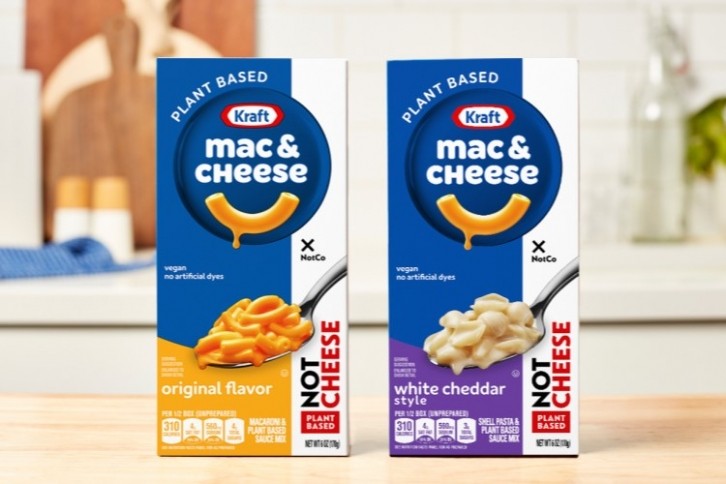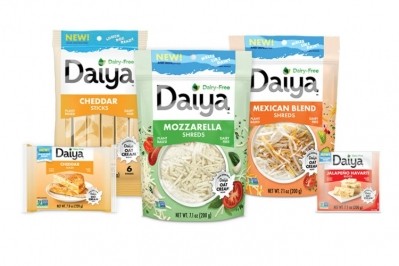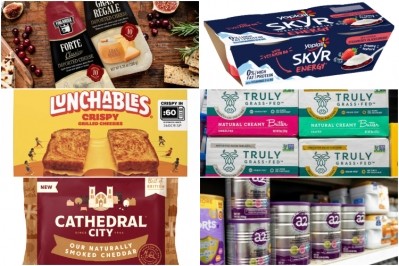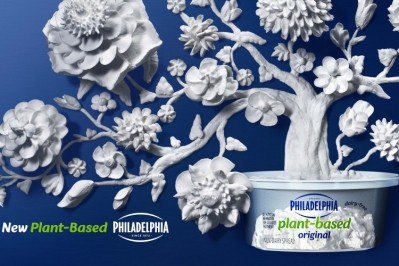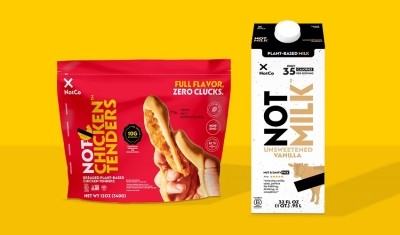‘Creamy and comforting’: Will Kraft Heinz Not Company's plant-based mac & cheese win vegans over?
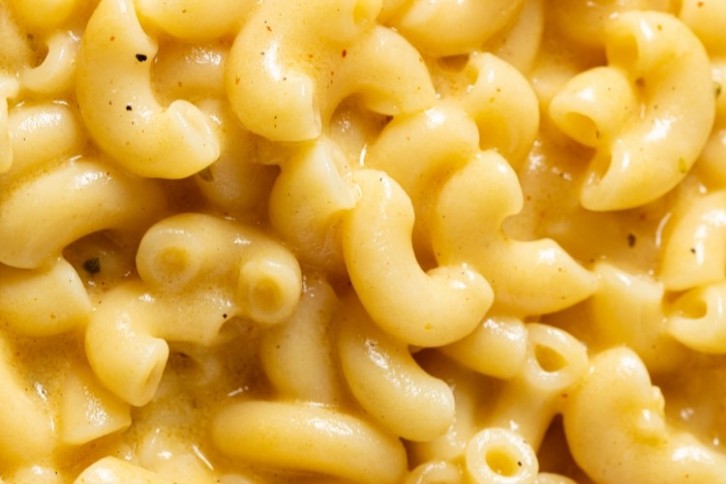
According to polling company YouGov US, macaroni and cheese was the 11th most popular food dish for Americans as of Q3 2023. It sits behind other cheese-rich favorites such as nachos and quesadilla, but beats out staples such as pizza margherita and barbeque brisket. The poll shows that the venerable pasta dish is a multigenerational favorite too, being almost popular among Millennials, Gen X-ers and Baby Boomers.
Making a suitably indulgent dish with ingredients that don’t include dairy can be a pickle, however – compared to plant-based milk, cheese alternatives are yet to achieve the functional and nutritional profile that would satisfy a wider range of consumers. According to McKinsey research, there’s strong consumer loyalty to dairy among US consumers, the majority of whom state they would only eat dairy, with 90% of people reporting they did not plan to reduce their dairy consumption in the next three years. Meanwhile, the market for plant-based cheese in the US in 2022 was just 2% of the whole plant-based alternatives segment, according to Euromonitor data.
But plant-based has its appeal too – according to McKinsey, of those shoppers who tried a plant-based alternative, 49% said they stopped or consumed less dairy, versus 45% who had stuck to their dairy-eating habits.
At the same time, the majority of plant-based cheeses have low protein levels and high levels of saturated fat, according to a study1, while functional properties such as stretch that dairy proteins like casein deliver naturally in dairy cheese are difficult to deliver in plant-based alternatives.
But the accelerated development of artificial intelligence (AI) has meant manufacturers who are able to tap into the new technology can select for the exact type of functionality in plants to deliver better alt cheese formulations. It is being done by the Bel Group and Climax Foods, by Danone and Brightseed, and of course, by Kraft Heinz and the NotCompany (NotCo), who have now put out their third product collaboration to market.
Kraft Heinz NotMac&Cheese follows the releases of a plant-based mayonnaise, NotMayo (chickpea flour and other ingredients instead of eggs) and the Kraft-branded NotCheese slices (chickpea and coconut oil among other ingredients), a vegan alternative to the company’s well-known cheese singles.
The plant-based mac’n’cheese product is also a spin on an existing Kraft Heinz product – the Kraft Macaroni & Cheese meal kit that is cooked in under 10 minutes according to the instructions. According to the company, a plant-based version was a much-requested product from consumers.
“Kraft NotMac&Cheese is the first-ever plant-based Kraft Mac & Cheese to launch in the United States,” a Kraft Heinz Not Company spokesperson told us. “It is vegan and contains plant-based ingredients such as fava bean protein and coconut oil powder, with no artificial dyes and a similar taste, look and feel to dairy-based mac & cheese.
“From social listening, we know that Kraft Mac & Cheese fans in the United States have been asking for a plant-based version of the blue box favorite for years and we’re excited to deliver on that.”
The new product comes in two variants, Original and White Cheddar, both of which contain fava bean protein isolate to bring protein levels at 10g per cup. The rest of the sauce mix ingredients include coconut oil powder, modified starch, yeast extract, natural colors such as paprika and turmeric, and dried pineapple among others.
Kraft Heinz told us that distribution for mac & cheese products that also fall in the ‘better-for-you’ category is outpacing the overall category by more than six times2. Meanwhile, demand for plant-based alternatives that are both tasty and accessible is also growing, the company said.
According to The NPD Group (now part of Circana), around 25 million shoppers eat plant-based food and beverages occasionally or regularly, and one in five want to adopt more plant-based foods in their diet. Retail expansion has slowed in recent times however, with milk alternatives down 3% year on year in January 2023. But Chris DuBois, senior vice president for IRI's Protein Practice (now part of Circana), said that this was down to inflationary pressures faced by shoppers and a return to pre-pandemic habits. “As long as the big plant-based companies continue to deliver taste, texture, and innovations while working toward price parity with other protein options, the category can thrive, especially in the frozen case where the strength and base are consistent,” he explained.
When it comes to plant-based cheese, developing better taste and functionality is particularly important. The spokesperson told us: “We know that the largest pain points consumers continue to experience with plant-based mac & cheese are taste and texture. With The Kraft Heinz Not Company, it’s our mission to create plant-based versions of fan-favorite foods that taste like the real thing, yet don’t require people to drastically change their eating habits.
“Now, through the iconic Kraft Mac & Cheese brand, we aim to address these pain points and deliver the creamy and comforting experience consumers have loved over 85 years, without the cheese.”
On using AI to formulate the plant-based cheese mix, the spokesperson said the technology has been game-changing.
“Through the combination of Kraft Heinz’s family of brands and NotCo’s AI technology, we’re able to develop plant-based versions of the brands consumers know and love at a level of speed and taste that’s never been done before,” they told us. “This AI technology further enables us to understand food at the molecular level in order to mimic taste, functionality, color, and more.”
The new plant-based range is currently being rolled out nationwide through early 2024. But more products are in the works, the Kraft Heinz Not Company told us, though details were spared at this time. “Looking ahead, we plan to scale into several more categories and begin international expansion in 2024. More to come!”
Sources:
1. Nutritional Profiles of Non-Dairy Plant-Based Cheese Alternatives
Winston J. C., et al
Published: Nutrients, 16 March 2022 16;14(6):1247.
DOI: 10.3390/nu14061247
2. The information is based on IRI Total US Multi Outlet survey, WE 6/4/23, Circana Goodles Analysis May 2023.
